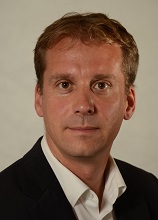Download the full conference programme (PDF, 731Kb)
Programme updated 12.06.18
Keynote Speakers
During the conference there will be three Plenary Sessions. We are pleased to confirm the Keynote speakers, Professor Helen Stokes-Lampard, PD Dr. Med. Jan Schildmann, M.A, and Professor Lindsay Prior.
Professor Helen Stokes-Lampard
 Professor Helen Stokes-Lampard is Chair of Council for the Royal College of General Practitioners (RCGP), the UK’s largest medical Royal College representing over 52,000 family doctors across. The Chair shapes policy and leads the strategy of the College, working with politicians, policy makers and the media to ensure that the ‘voice’ of general practice and GPs is understood and represented.
Professor Helen Stokes-Lampard is Chair of Council for the Royal College of General Practitioners (RCGP), the UK’s largest medical Royal College representing over 52,000 family doctors across. The Chair shapes policy and leads the strategy of the College, working with politicians, policy makers and the media to ensure that the ‘voice’ of general practice and GPs is understood and represented.
Helen was RCGP Honorary Treasurer from 2012 to 2016 with responsibility for all matters related to the College finances and assets including premises, IT and human resources. Prior to this, she was Treasurer for the RCGP Midland Faculty and until stepping down to become Chair, retained involvement in the College’s work at a local level in her role as a personal mentor for doctors in difficulty.
She is a part-time GP partner at The Cloisters Medical Practice in Lichfield, Staffordshire, a dynamic group practice which she joined in 2002 on completion of her academic GP training at Birmingham University’s School of Medicine.
Helen’s academic research has explored many aspects of women's health, including gynaecological cancer screening, epidemiology and data linkage studies. She was Head of Primary Care Teaching (undergraduate) at Birmingham University’s School of Medicine until September 2016.
She was Clinical Director of the accredited Primary Care Trials Unit at Birmingham until 2012. She was also Head of the Academic GP Trainees programme at Birmingham where she ran an MSc module in Community Gynaecology and taught communication skills and ethics.
Prior to training as a GP, Helen graduated from St George’s Medical School, University of London before working in Obstetrics and Gynaecology for several years; an experience that has shaped her clinical and academic aspirations.
PD Dr. Med. Jan Schildmann, M.A, Chair for History and Ethics of Medicine, Martin Luther University Halle-Wittenberg
 Jan Schildmann is director of the Institute for History and Ethics of Medicine at the Medical Faculty of Martin Luther University Halle-Wittenberg and a Specialist for Internal Medicine. He has studied in Berlin, London, Madrid and New York. Jan has won a number of awards both for teaching and research during his career, including The Research Award of the German Association of Palliative Medicine (Deutsche Gesellschaft für Palliativmedizin), and The Best Practice Award "Mehr Dialog bei Krebs" ("More dialogue on cancer") awarded by the Deutsche Krebsgesellschaft (German Cancer Association)/Novartis Oncology. His research focuses on various topics in clinical ethics (e.g. end of life decision making, ethics in medical oncology and palliative care) and empirical ethics methdology. In collaboration with Cochrane and together with researchers from different fields he is currently conducting a systematic review on the effectiveness of ethics consultation. In his research he combines normative and empirical methods to explore ethical challenges in clinical practice and develops strategies for ethical decision making. Next to research he is interested in teaching students and health professionals on various topics related to ethics and communication in medicine (e.g. breaking bad news, advance care planning).
Jan Schildmann is director of the Institute for History and Ethics of Medicine at the Medical Faculty of Martin Luther University Halle-Wittenberg and a Specialist for Internal Medicine. He has studied in Berlin, London, Madrid and New York. Jan has won a number of awards both for teaching and research during his career, including The Research Award of the German Association of Palliative Medicine (Deutsche Gesellschaft für Palliativmedizin), and The Best Practice Award "Mehr Dialog bei Krebs" ("More dialogue on cancer") awarded by the Deutsche Krebsgesellschaft (German Cancer Association)/Novartis Oncology. His research focuses on various topics in clinical ethics (e.g. end of life decision making, ethics in medical oncology and palliative care) and empirical ethics methdology. In collaboration with Cochrane and together with researchers from different fields he is currently conducting a systematic review on the effectiveness of ethics consultation. In his research he combines normative and empirical methods to explore ethical challenges in clinical practice and develops strategies for ethical decision making. Next to research he is interested in teaching students and health professionals on various topics related to ethics and communication in medicine (e.g. breaking bad news, advance care planning).
Professor Lindsay Prior
 Lindsay Prior is Professor Emeritus in the Centre of Excellence for Public Health at Queen’s University, Belfast, UK. His educational background is in mathematics, philosophy of science, and sociology, and his main academic interests connect to medical sociology and aspects of research methodology.
Lindsay Prior is Professor Emeritus in the Centre of Excellence for Public Health at Queen’s University, Belfast, UK. His educational background is in mathematics, philosophy of science, and sociology, and his main academic interests connect to medical sociology and aspects of research methodology.
Publications during recent years have included papers on physical activity and health (Social Science & Medicine), architecture and health, and end-of-life care (Sociology of Health & Illness), as well as on the virtues of small N and N=1, in particular (Critical Public Health). He contributes regularly to edited collections, dictionaries and encyclopaedias on social research methods and he is author and editor of the four-volume collection, Using Documents and Records in Social Research (Sage, 2011), and Using Documents in Social Research (Sage, 2003). He is currently writing a book on novel ways of analysing qualitative data.